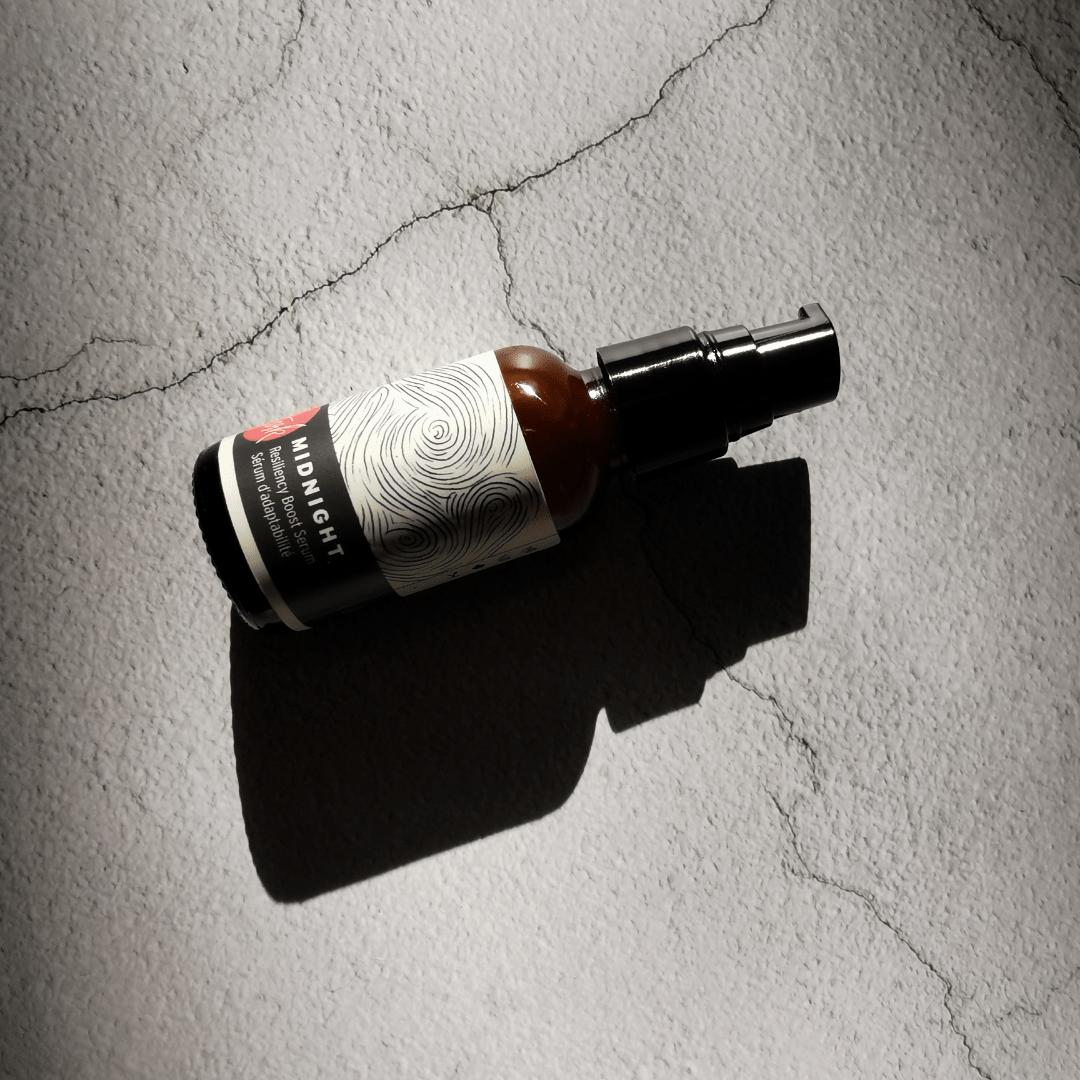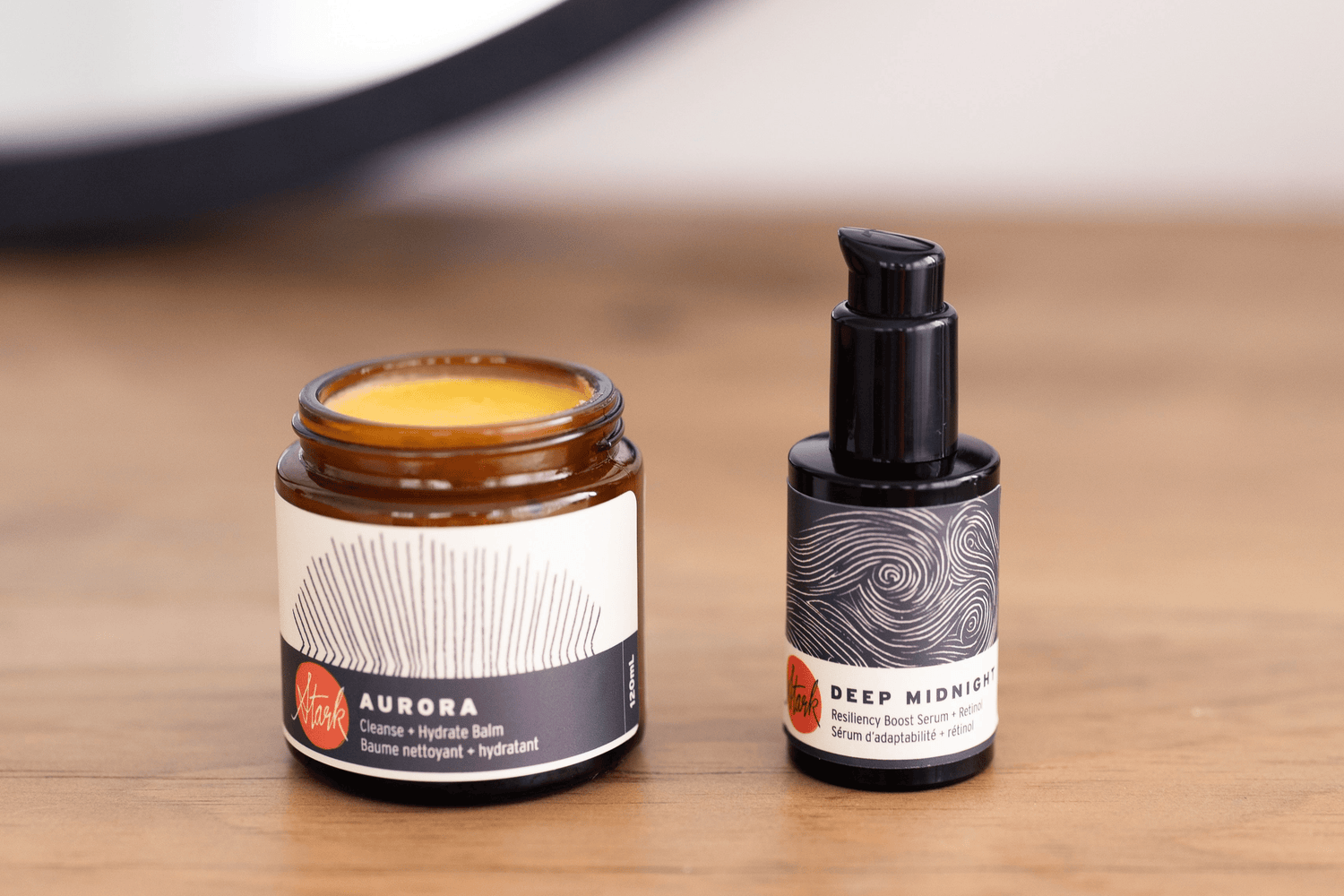
Skincare ingredients that don't mix
Share
Are you wondering what skincare ingredients not to mix together? Which skincare ingredients are simply incompatible? Luckily, the rule of thumb is very simple.
With the rise of single-ingredient products and skincare cocktailing, any derm or aesthetician will tell you that their client's skin is getting more and more sensitized. Atopic dermatitis, sensitivities, destroyed barriers and allergic-like reactions are becoming the norm. People are mixing skincare ingredients, and they simply aren't compatible.
This is likely because skincare is now super trendy, and people are frankly doing way too much. Playing alchemist is way too much fun to NOT use 4 serums a night and frankly people just exfoliate like they want their skin to physically leave their body. We all need to relax a little.
And some products? Do not mix. I'm not talking oil and water here (hur hur, formulating jokes), I mean some ingredients, when paired, do not play nice. Especially at the high %s that the consumer now demands because EFFICIENCY. (Guys... be gentle!! A small % does NOT mean a brand is ripping you off. It means they don't want your skin to rip off!)
Which skincare ingredient don't mix - the Rule of Thumb:
Whereas we can make it complicated by discussing pH levels and how ingredients are absorbed, really it just comes down to this: if it's an ingredient that causes any degree of "drying out", turn cells over quickly and causes any degree of irritation, don't mix it with other ingredients that are very active and cause irritation by nature. Anything potentially irritating should be used with SOOTHING ingredients like glycerin, many oils or butters, humectants like sodium PCA or hyaluronic acid, panthenol, bisabolol, allantoin, chamomile, calendula, yarrow, zinc, green tea, etc.
But, I know many of us want a little spice in our skincare, so let's look at a few of those ingredients that don't mix:
Don't Mix Retinols and Acids/exfoliation
I could stop this list right here because these 2 things are so common now, and so, so, so painful to mix, and the possibility of destroying your skin barrier has never been easier with this combo. We need to ease up. I believe skin needs to just BE regularly. No constant exfoliating or forced cell turnover. Maybe 2x a week, max, with lots of recovering time in between.
Personally, I am having a very hard time with my retinol routine (I am slowly trying out different things and hint hint hint can't say more!) and have never had skin more sensitized than I do now. It's not that bad, I mean, I can't let myself get to that red flakey phase because that seems so counter-intuitive to me, but I am so used to having a super robust barrier so my skin-on-retinol is weird to me, and I can't say I like the experience. But you know, here I am, for science. Using it.
So when I am using retinol, I stay away from acid treatments. I still use super gentle enzymes like Eclipse (as a wash off, makes it even gentler plus tons of gentle, buffering ingredients help immensely) but won't go near glycolic, salicylic (in it's pure form... willow bark is ok) or manual exfoliation. And I am religious about SPF!
Some say that using acid treatments on your nights off retinol is ok, but personally I give my skin a break on those nights and just load up on Equinox and Midnight. I don't think skin needs both retinol AND acid treatments. A little enzyme is ok in a wash, but an overnight acid treatment?! Ouch. I mean... just, why do that to yourself? Because Instagram or TikTok says so? No.
Do not Mix: L-Ascorbic Acid and Acids with exfoliation
Vitamin C is a great skincare ingredient, but not all vitamin C is created equal, and L-Ascorbic is to me, the one that makes my skin feel like it's covered in fire ants when I've been using retinol or exfoliating a bit. So unpleasant, which is why I use tetra-hexadecyl ascorbate in our City Light Daytime Oil, which is super-stable and GENTLE. Also, it's not pH dependent so acids won't destabilize it. I can use Tetra-Hex when I am using retinol or anything else, and it's gentle enough to wear during the day. Also, vitamin C helps sunscreen work better!
Do not Mix: Acne treatments and Acids with exfoliation
Seeing a trend here? Benzoyl Peroxide is a popular acne treatment and certainly not what I condone for acne treatment, but if you find it effective, please don't use it with exfoliating products.
So as you see, it's not a huge secret: be gentle. Don't overdo it. Pain does not mean it's working better. Just consistent with your skincare and don't mix ingredients that have the potential of becoming too harsh.




